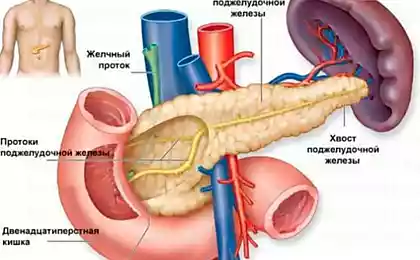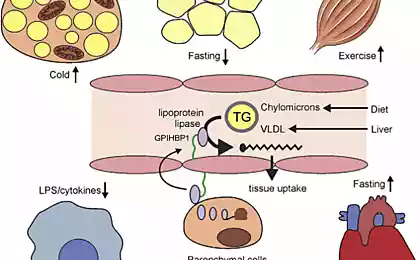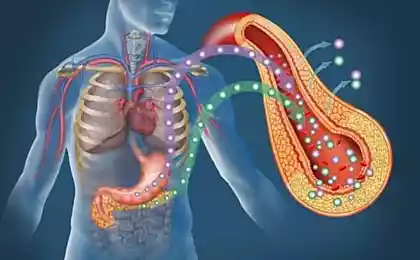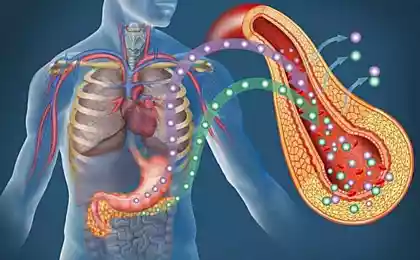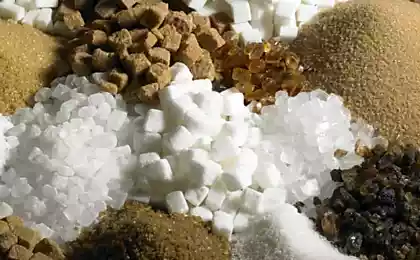537
We eat all the time! How snacks affect your weight
Snacks, insulin and obesity.
Increase level of insulin occurs at any meal, regardless of its composition. Any snacks: protein and carbohydrate increase insulin levels. Increasing the body is the suppression of use of glycogen, stops the breakdown of fat, increases fat synthesis. About the culture of snacking I already wrote: food in France
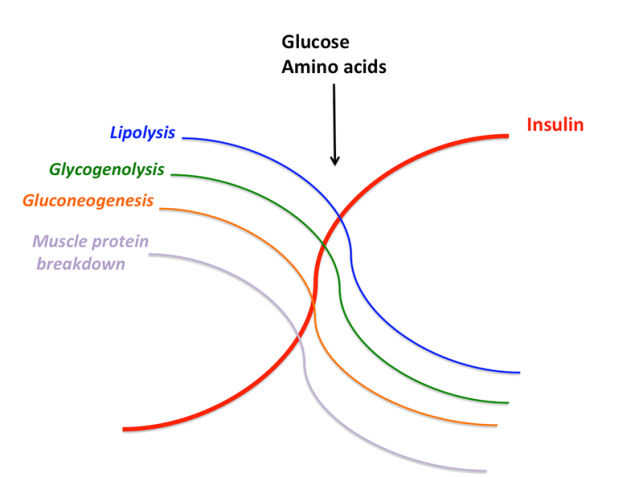
Insulin levels and metabolism
For the development of insulin resistance requires:
1. High insulin levels.
Achieved with large portions, lots of sugar and carbohydrates.
2. Frequent increase the level of insulin.
Is achieved by increasing the frequency of meals (insulin + snack). The time between meals in the United States decreased from 271 minutes in 1977 to 208 minutes. It's close to a 30% reduction between meals. We eat all the time! Remember: if you eat all the time, your weight will only grow!
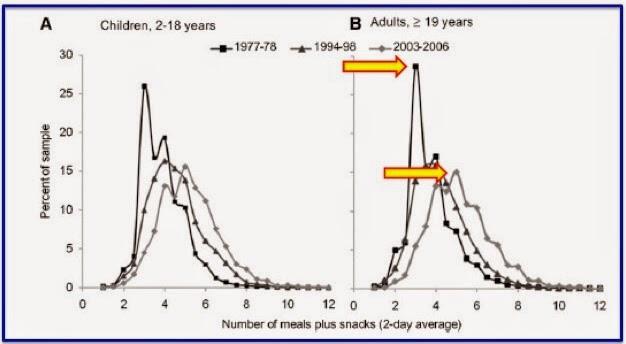
The increase in the number of meals
3. Long-term effect of such a regime.
The sooner people begin to follow this diet, the sooner you develop the disease. Diabetes type II diabetes among children in Western countries is commonplace.
Remember: once you bite, you in the body stopped the process of splitting fat! Snack — insulin increased!
Over time the insulin receptors become less sensitive to the sugar in the cells goes bad, the level in the blood increases, and increases reactive insulin. All the "extra" sugar hormone resets in fat depots, and simply put, translates into fat plus increases appetite.
It turns a vicious cycle: overeating – chronic increase of insulin in the blood – increased appetite – increased fat deposition – overeating.
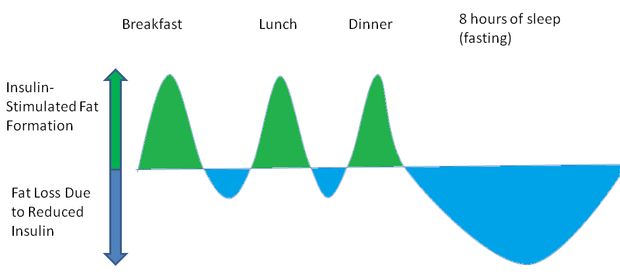
The level of insulin and regular meals
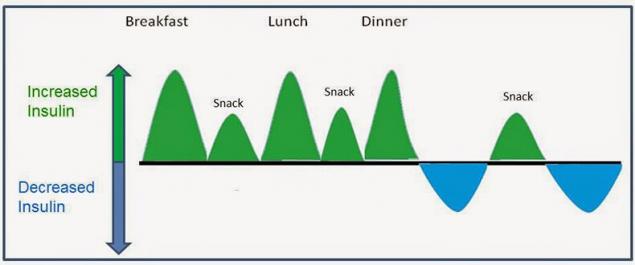
Insulin levels and meals with snacking
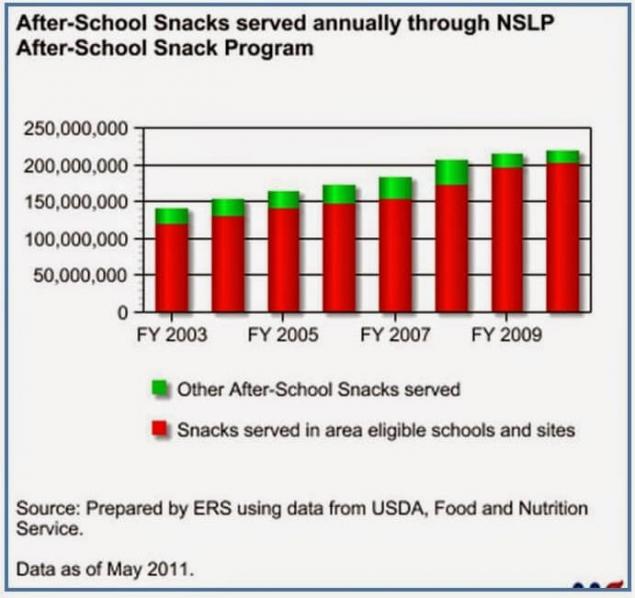
The increase in the number of snacks in schools, USA
Insulin resistance underlies many diseases.
1. Insulin resistance. Develops metabolic syndrome and obesity.
2. Hyperinsulinemia and polycystic ovaries affect women's reproductive function and leads to infertility.
3. Diabetes of the 2nd type and hyperglycemia, hyperinsulinemia and insulin resistance — are independent risk factors of coronary heart disease.
4. Hypertension and several other diseases.published
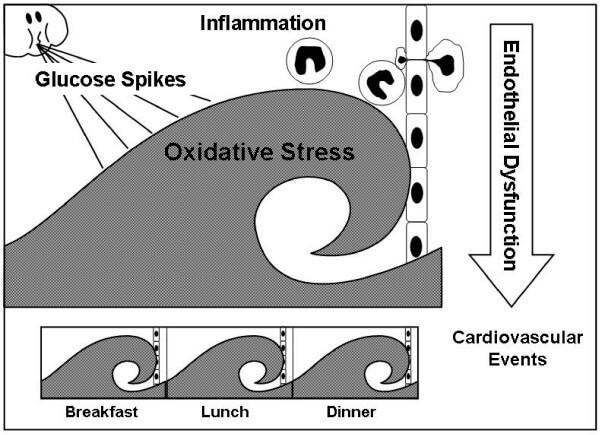
Author: Andrey Blueskin
As the nature of the affects of the disease
Happiness hormone: 95% of serotonin is in the gut
P. S. And remember, just changing your mind — together we change the world! ©
Source: www.beloveshkin.com/2015/04/uroven-insulina-i-perekusy.html
Increase level of insulin occurs at any meal, regardless of its composition. Any snacks: protein and carbohydrate increase insulin levels. Increasing the body is the suppression of use of glycogen, stops the breakdown of fat, increases fat synthesis. About the culture of snacking I already wrote: food in France

Insulin levels and metabolism
For the development of insulin resistance requires:
1. High insulin levels.
Achieved with large portions, lots of sugar and carbohydrates.
2. Frequent increase the level of insulin.
Is achieved by increasing the frequency of meals (insulin + snack). The time between meals in the United States decreased from 271 minutes in 1977 to 208 minutes. It's close to a 30% reduction between meals. We eat all the time! Remember: if you eat all the time, your weight will only grow!

The increase in the number of meals
3. Long-term effect of such a regime.
The sooner people begin to follow this diet, the sooner you develop the disease. Diabetes type II diabetes among children in Western countries is commonplace.
Remember: once you bite, you in the body stopped the process of splitting fat! Snack — insulin increased!
Over time the insulin receptors become less sensitive to the sugar in the cells goes bad, the level in the blood increases, and increases reactive insulin. All the "extra" sugar hormone resets in fat depots, and simply put, translates into fat plus increases appetite.
It turns a vicious cycle: overeating – chronic increase of insulin in the blood – increased appetite – increased fat deposition – overeating.

The level of insulin and regular meals

Insulin levels and meals with snacking

The increase in the number of snacks in schools, USA
Insulin resistance underlies many diseases.
1. Insulin resistance. Develops metabolic syndrome and obesity.
2. Hyperinsulinemia and polycystic ovaries affect women's reproductive function and leads to infertility.
3. Diabetes of the 2nd type and hyperglycemia, hyperinsulinemia and insulin resistance — are independent risk factors of coronary heart disease.
4. Hypertension and several other diseases.published

Author: Andrey Blueskin
As the nature of the affects of the disease
Happiness hormone: 95% of serotonin is in the gut
P. S. And remember, just changing your mind — together we change the world! ©
Source: www.beloveshkin.com/2015/04/uroven-insulina-i-perekusy.html





